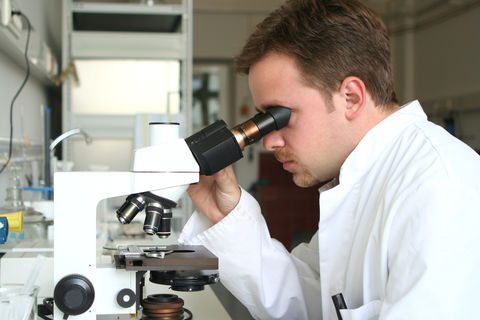Liquid biopsy promises early detection for cancer

A team of researchers has taken a major step toward one of the holy grails in cancer research; a blood test that can detect tumours early. Their new test, which examines cancer related DNA and proteins in the blood, yielded a positive result about 70% of the time across eight common cancer types in more than a thousand people whose tumours had not yet spread, among the best performances yet for a universal cancer blood test. It also narrowed down the form of cancer, which previously published pan-cancer blood tests have not.
Science reports the research could one day lead to a tool for routinely screening people and catching tumours before they cause symptoms, when chances are best for a cure. Other groups, among them startups with more than $1bn in funding, are already pursuing that prospect. The new result could put the team, led by Nickolas Papadopoulos, Bert Vogelstein, and others at Johns Hopkins University in Baltimore, Maryland, among the front runners.
Cancer researcher Alberto Bardelli of the University of Turin, who was not involved in the research said “The clever part is to couple DNA with proteins.”
The researchers have already begun a large study to see whether the test can pick up tumours in seemingly cancer-free women.
Genetic mutations drive the growth of cancer cells, and dying cells shed some of this mutated DNA into the blood. The Johns Hopkins group and others have shown that liquid biopsies of blood-borne tumour DNA can reveal, for example, whether someone’s cancer should respond to a specific drug. But detecting the scant DNA released by early stage tumours is still challenging. Companies such as the $1bn Grail, launched in 2016 by sequencing giant Illumina, are using a big data approach, sequencing hundreds of genes in the blood of thousands of people with cancer in search of a definitive set of DNA markers.
The Johns Hopkins researchers and collaborators found that gains in the detection rate tailed off when they added more genes to their test. They decided to sequence parts of just sixteen genes often mutated in different types of cancer. They then added eight known protein biomarkers characteristic of specific kinds of cancer. This bumped up sensitivity and allowed the team to home in on the tissue type of the tumour.
In blood samples from one thousand and five people with eight types of tumours that had evidently not yet metastasised, the test detected between 33% and 98% of cases, depending on the tumour type. The sensitivity was 69% or higher for ovarian, liver, stomach, pancreatic, and oesophageal cancers, which are all types that are difficult to detect early.
The test rarely found cancer that wasn’t there. Only seven out of eight hundred and twelve, or less than 1%, of healthy controls tested positive. And the test, called CancerSEEK, narrowed the origin of the cancer to two possible sites in about 80% of people. The team, which is applying for patents on CancerSEEK, estimates the cost at less than $500 per sample. “That’s a very attractive number” said molecular pathologist Anirban Maitra of the MD Anderson Cancer Center in Houston, Texas, because it is in the range of other cancer screening tests such as colonoscopy.
However, Anirban Maitra and others point to caveats. One is that the cancer-related proteins used by the test reflect tissue damage and can also appear in people with inflammatory diseases such as arthritis. Proteomics researcher Lance Liotta of George Mason University in Manassas, Virginia notes that means the 1% false positive rate will likely be higher in less healthy populations. What’s more, the one thousand and five participants already had cancer symptoms. CancerSEEK probably won’t work as well in asymptomatic people whose smaller tumours may shed less DNA. In fact, the test picked up only 43% of very early, stage 1 cancers. Alberto Bardelli said “We’re still not there yet.”
The Johns Hopkins team thinks Cancer-SEEK is ready for testing as a screening tool. Nikolas Papadopoulos said “A test does not have to be perfect to be useful.” In collaboration with Johns Hopkins, the Geisinger Health System in Pennsylvania has already begun to use CancerSEEK on blood samples from female volunteers aged between sixty five and seventy five who have never had cancer. The planned $50m, five year study of up to fifty thousand women is being funded by a private philanthropic group, The Marcus Foundation.
For those who test positive twice, the next step will be imaging to find the tumour. But that will bring up questions raised by other screening tests, such as whether the test will pick up small tumours that would never grow large enough to cause problems, but will be treated anyway, at unnecessary cost, risk, and anxiety to the patient. Nikolas Papadopoulos thinks the problem is manageable because an expert team will assess each case. He said “The issue is not overdiagnosis, but overtreatment.”
Still, others working on liquid biopsies say that it will take time to figure out whether widespread screening of healthy people with a universal blood test can reduce cancer deaths without doing harm. Nitzan Rosenfeld of the University of Cambridge said “If people expect to suddenly catch all cancers, they’ll be disappointed. This is exciting progress. But evaluating it in the real world will be a long process.”








